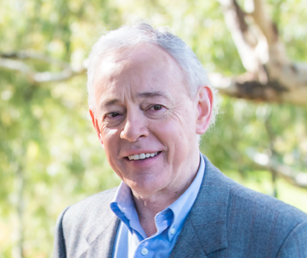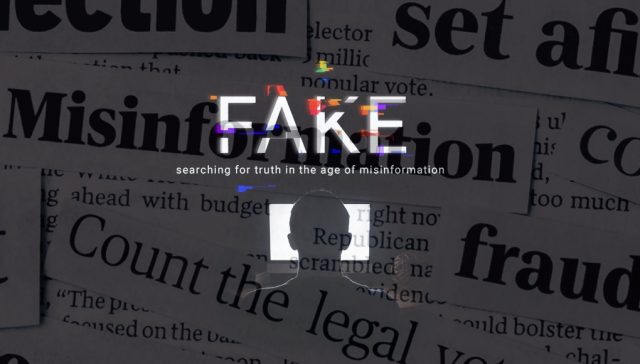A Digital Dark Age (part 2)
The only currency that matters is power – getting it and holding on to it.
Attaining power these days involves denigrating and silencing your opponents in any way possible: censoring them, branding what they say as misinformation, disinformation or malinformation, with the primary aim being to prevent them getting their message out.
As has been observed, ‘When ideas are bad, censorship will always be more attractive than debate.’
In a recent renewable energy report, Energy Infrastructure Commissioner Andrew Dyer summed up in one concise sentence why governments relish powers like the ones being proposed.
Dyer said, “Opposition is often driven by ‘misinformation’.”
That is what is called a ‘shibboleth’.
Shibboleth is a Hebrew word meaning ‘stream’. It is referred to in the Old Testament book of Judges, where Jephthah and the men of Gilead fought the Ephraimites and captured the Jordan River crossing. As people crossed the river, to distinguish who was friend from foe, they had everyone say the word ‘shibboleth’. If they couldn’t pronounce it properly, they knew they were the enemy. From this, the word shibboleth was absorbed into the English language to describe a key identifier or a dead give-away.
What we saw in the Energy Commissioner’s comment was that dead give-away.
Once this Bill is law, all the government has to do is label something ‘misinformation’ or ‘disinformation’ to have it shut down. Presto! Any opposition is eliminated.
Historically, the media has fought hard to maintain freedom of the press and freedom of expression.
Internationally, ‘misinformation and disinformation’ have risen to number one on the list of top 10 risks cited by the World Economic Forum’s (WEF) Global Risks Report 2024.

Addressing the recent WEF conference, European Union President Ursula von der Leyen said: ‘Like in all democracies, our freedom comes with risks. There will always be those who try to exploit our openness, both from inside and out. There will always be attempts to put us off track – for example, with ‘misinformation and disinformation.’
The politics of fear
Fear has always been a powerful political motivator. Fear makes people accept things they wouldn’t otherwise accept.
In the 16th Century, Niccolo Machiavelli wrote The Prince, a book that would influence political strategy and tactics for the next 500 years.
Machiavelli’s book centred on the use of fear to control the masses – ‘The best course of action for a ruler to take is to instil fear in the people’, he said.
And for people to not only fear what might happen, but that they would also ‘fear the worst’.
Minister Rowland has said misinformation and disinformation pose a threat to ‘the safety and wellbeing of Australians’ and ‘to our democracy, society and economy’.
This is the politics of fear.
And the antidote to fear is knowledge – information, facts, figures. Which is why they want the power to prevent people from receiving it.
Conflating issues also plays a useful role.
As well as the Misinformation and Disinformation Bill, Minister Rowland has also announced a review of the Online Safety Act, saying the government is committed to introducing a revised version of its ‘internet censorship laws’.
The Institute of Public Affairs (IPA) hit back:
“It is completely disingenuous for the Minister to seek to conflate the protection of Australians from predators online with the federal government’s plan to empower bureaucrats in Canberra (ACMA) with the right to determine what is truth, and to censor mainstream opinion through its ‘misinformation’ bill,” said the IPA’s John Storey.
“The federal government is cravenly using heightened concerns about current tensions in parts of our community, and the fears of parents and others about harmful online content, as a trojan horse to push forward laws that will in practice impose political censorship,” he said.
Climate Change
South Australia’s chief public health officer, Professor Nicola Spurrier, recently warned that the nation is facing a state of “permacrisis” as climate change fuels ‘back-to-back natural disasters and the emergence of new diseases’.
In her biennial report on the state of public health, Prof. Spurrier calls climate change ‘the most significant global threat to human health’, saying the planet is getting hotter and is experiencing more extreme weather events such as flooding and bushfires.
‘We need to respond to this threat today, not tomorrow or in the distant future,’ her report states. ‘These changes to the climate are caused by humans.’
Prof. Spurrier’s report says this will lead to exacerbation of chronic diseases such as heart, lung and kidney disease; damaged food crops; increased risk of food poisoning and water contamination; injuries from flooding and bushfires; and even an increase in snake bites after floods.
‘Other health impacts from climate change include poor air quality due to increased dust and pollens and the emergence of serious new communicable diseases in South Australia, such as Japanese encephalitis virus,’ she says.
Mercifully, she spared us plagues of locusts and frogs and the Murray River turning to blood.
Attaining power these days involves denigrating and silencing your opponents in any way possible
This is ‘permacrisis’ – permanent crisis – putting communities into a permanent state of climate fear.
Machiavelli would be proud.
The Voice to Parliament Referendum
When the Yes side didn’t win the Voice Referendum, they immediately blamed, you guessed it – misinformation.
Yes campaign director Dean Parkin, said the referendum result was due to ‘the single largest misinformation campaign that this country has ever seen’.
Yes campaign spokesperson Thomas Mayo blamed the ‘disgusting No campaign, a campaign that has been dishonest, that has lied to the Australian people’.
Teal MP Zali Steggell even introduced a private members’ bill with the title Stop the Lies.
Ms Steggall stated that it was clear that the information people had access to through the course of the Voice debate was ‘heavy with misleading and deceptive facts’.
Got that? ‘Misleading and deceptive facts’, the very definition of malinformation.
Governments, technology and third-party collaborators
Baptists and Bootleggers
Whenever there is money to be made, opportunities to do business with governments – that is, do the government’s bidding in exchange for special access and privileges – present themselves. Cosy relationships between businesspeople and governments are as old as regulation itself.
What can give these relationships real potency is what has been called the ‘Baptists and Bootleggers’ phenomenon. The term stems from the 1920s’ Prohibition days, when members of the US government received bribes and donations from Bootleggers – criminals and businesspeople eager to maintain a scarcity (and resulting high price) of their product (alcohol). These same Members of Congress then justified maintaining the prohibition by publicly adopting the moral cause of the Baptists.
The same applies here. A moral cause – ‘threats to the safety and wellbeing of Australians’, and financial rewards to those assisting governments in their pursuit of power.
Historically, the media has fought hard to maintain freedom of the press and freedom of expression.
However, new media have no such compunction. As more and more people source their news through Google, Facebook, X, Tik Tok, Instagram and other social media platforms, these global behemoths exert more and more power and influence. And while the old press barons took free speech seriously, big tech sees no problem at all in doing the government’s bidding – provided the government maintains their ‘platform, not publisher’ status and the advertising money keeps flowing. Al Capone may have invented bootlegging, but big tech has certainly perfected it.
Tech entrepreneur and former Google insider Tristan Harris says we are in the midst of a ‘great social upheaval’. Technology, he says, is being used to attack the very foundation of what we trust. ‘We are entering a Digital Dark Age’.
Digital IDs Drivers’ licences, proof of age cards, passports, Medicare cards, birth certificates, home addresses, MyGov IDs, tax returns, credit cards and banking details, remote-controlled smart meters on our homes, digital certificates of title for our properties. Once these are all linked – as the government ads say, ‘bringing together government and industry’, the government’s control will be complete.
Tomorrow – part 3

Bob’s contribution to the Australian community has been reflected in a wide range of appointments including National President of the Housing Industry Association, Co-Founder and Inaugural President of Independent Contractors of Australia, Director of The Centre for Independent Studies, and Senator for South Australia.









